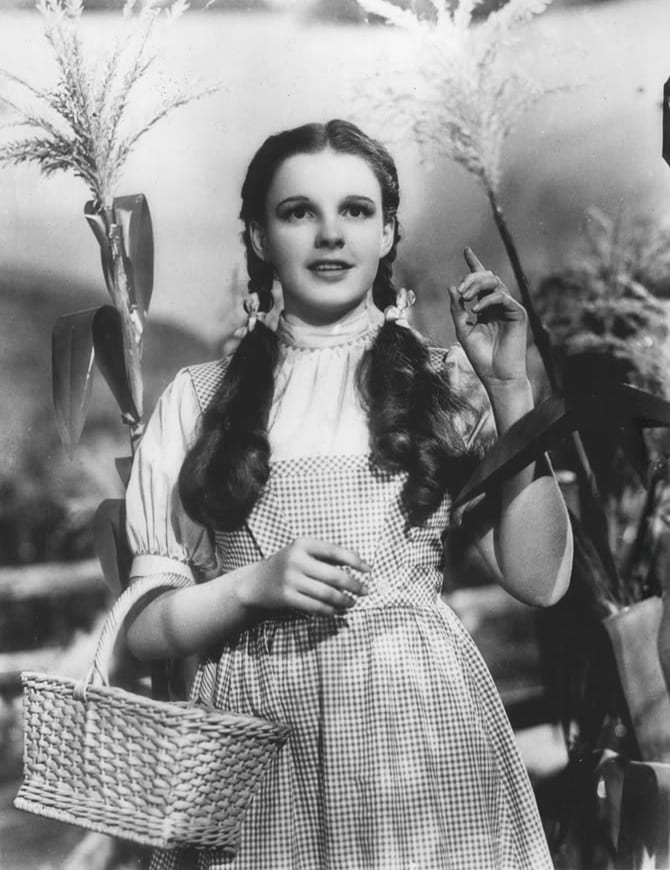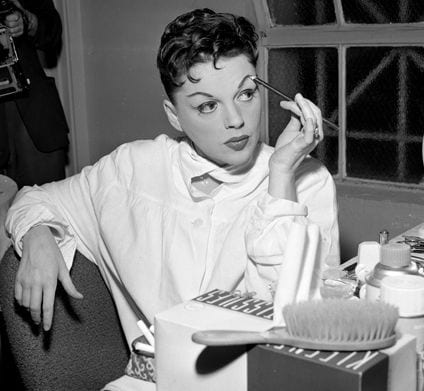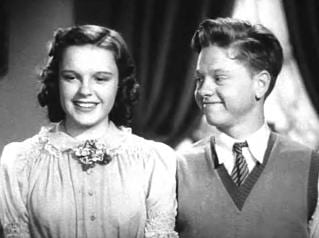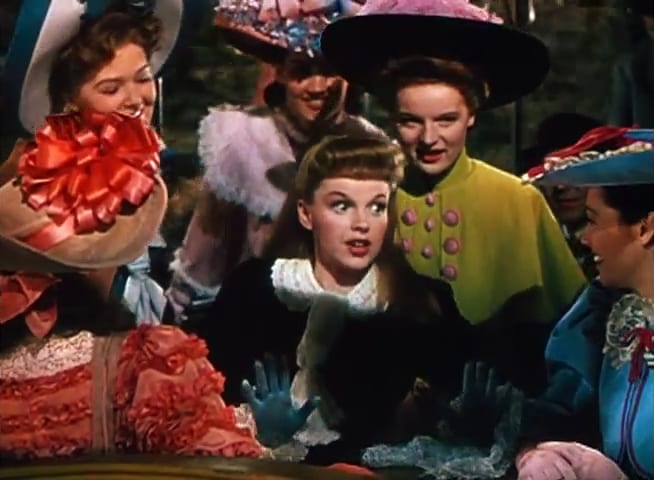I don’t know if you’ve been made aware of this yet, but history is kind of terrible. In all kinds of ways.
Historians of Reddit, what’s a devastating event that no one talks about? from AskReddit
Many of the people who posted here included disclaimers that they were not full-on historians, and that the information they present should be taken with a grain of salt. Those disclaimers have been removed for the sake of not getting redundant, but the point remains that if any of these tales from Reddit intrigue you – you should definitely look into them further!
1. The Year of Living Dangerously
The Year of Living Dangerously in Indonesia in 1965-66 saw absolute chaos and still has a marked effect on their society. It is possibly one of the largest mass killings of the last century and I had heard nothing about it ever, living in the West. It’s hard to say how many people actually died, but estimates range from 100k to 300k, and even on up to 500k or a million dead.
Basically, the Communist party in Indonesia was heavily influenced by Maoism and ethnic Chinese civilians. It was the largest Communist party outside of China. President Sukarno, who had helped the country through Japanese occupation and independence from the Dutch/British had kept the house of cards balanced, but was beginning to be swayed by Communist policies. The military, staunchly anti-Communist (and largely supported by the US) would be looking to take power.
One night, 6 high-ranking members of the military were abducted and killed. The army spread the word that the Communists were to blame and initiated mass reprisals. Killings, torture and imprisonment ran rampant over the islands and even ethnic Chinese or just suspected Communists were taken. Despite working with Sukarno for many years, the US would support his liquidation and the rise of the military. It is unclear how extensive American support to the army was, but it is probable they aided in training and may have even helped compile names of Communists to the army. Eventually, a general by the name of Suharto would take power and Sukarno would be placed under house arrest with no power.
Today, the massacres and chaos are not really taught in Indonesian schools and it’s clear that many have not come to terms with what happened. However, the mass killings of possibly a million or more people should rank up there in devastating events.
– captfaramir
2. The Carrington Event
In 1859, solar flares hit the earth causing an aurora borealis effect to be seen all over the world. It lasted for several days, during which time it was reportedly bright enough to read by at midnight. Telegraph operators reported receiving shocks and burns from the devices, and in some cases removed the batteries powering the telegraphs, as signals were being disrupted by the geomagnetic storm. After removing the batteries, the telegraphs still operated, in some cases better than they had when powered.
It wasn’t particularly devastating at the time, but it’s estimated that if a similar storm were to hit us today, it would cripple the entire planet for potentially decades. The estimated repair cost in the US alone is measured in the trillions. In 2012, a similar storm missed the earth by nine days.
– Dyne4R
3. The Goiânia Accident
Something that Is well known but not that much is the Goiânia accident in Brazil, where Cesium-137 was handled by many people, including children. It is regarded as the worst radioactive incident to happen in Brazil.
It was a radioactive contamination accident that happened on September 13, 1987 after a radiotherapy machine from an abandoned hospital was illegally stripped for parts and said parts were stolen, on September 16 one of the thieves opened a cesium capsule and then on September 18 sold it to a scrapyard, at that same night the owner of the scrapyard saw a blue glow in the machines parts (which was the cesium capsule that had been opened).
Thinking it might be valuable he brought it to his home, over the next 3 days he invited friends and family to see the strange glowing substance, on September 21 one of his friends succeeded in freeing several rice-sized grains of the glowing material from the opened capsule, he then started sharing some of them with friends and family, on September 25 the capsule was again sold to another scrap yard – although one day before the sale more dust was removed from the capsule by the scrapyard owner’s brother, the brother then took the dust home and spread it on the concrete floor where later his daughter would play in and with the dust she also ate while sitting on the floor and dust particles fell on her food, contaminating it – one of the family members of the owner of the first scrapyard noticed that many people around her fell ill and on September 28 she reclaimed the capsule from the second scrapyard and brought it to a hospital, in the morning of September 29 it was confirmed that the material was radioactive and the doctors persuaded authorities to take immediate action on the matter the city, state, and national governments were all aware of the incident by the end of the day.
News of the radiation incident was broadcast on local, national, and international media.
Within days, nearly 130,000 people went to local hospitals concerned that they might have been exposed, of those only 250 were indeed contaminated – some with radioactive residue still on their skin – 4 of those people died including a 6 year old girl (the one that ate food that had been contaminated by dust particles).
– Otaldolitro
4. The Second Congo War (1998 – 2003)
It’s the deadliest conflict since WW2 with about 5.4 million deaths a vast majority of them due to malnutrition and disease
– TrentonTallywacker
5. The Fall of Baghdad
Baghdad used to be one of the biggest and most vibrant cities in the world in the 1200s.
Until the Mongols came.
Baghdad did not recover its year 1200 population until the 1980s.
– SenorBeef
6. The Extinction of the Attu
During WW2 the Japanese had invaded the Alaskan island of Attu. On the island was the village of Attu where the Aleutian tribe had lived for centuries. The only non natives were the wife school teacher and priest husband who were elderly and beloved by the townspeople.
The husband was shot in front of his wife by the Japanese. After that the Japanese loaded the native population on to ships back to Japan were they worked in POW camps where many died from disease and execution. The Japanese saw them as lower then soldier POW and almost sub human because they didn’t fight back and thus treated them horribly.
When the war ended only a handful of the native population survived and they went back home only to find their village burned down. They left the island and it now remains uninhabited basically, driving the Attu tribe to extinction.
Years later the Japanese left a peace monument on the island in honor of the American and Japanese soldiers that died there but have yet to apologize to the descendants of the Attu tribe they destroyed.
– arcticredneck10
7. The Iroquois Theater Fire
One thing that doesn’t get talked about was more of a phenomenon or major problem than event, and that was how many people died in theater fires due to poor design, combustible materials, few fire exits, and panic.
One of the worst was the Iroquois Theater in Chicago (1903), which is both the deadliest theater fire and the deadliest single-building fire in US history where patrons died after sparks from an arc light set a curtain on fire, then a chain reaction started, exacerbated by failures of the things in place that were supposed to combat fire.
The theater had been overbooked to compensate for earlier poor sales, causing some to sit blocking the exits. The fire was immediately worsened when performers opened the stage door to get outside, as it turned the fire into a fireball. Many people were held inside by iron gates that had been put in place to prevent people from sneaking in without paying. As people fled, they tumbled down stairs, trampled each other, and got squashed to death. Their unfamiliarity with the building got them stuck in dead ends and up against windows. Many jumped from fire escapes and died, while those behind them were saved, the bodies of the earlier jumpers cushioning their falls.
All in all, 602 people died, many were children. The story is a lot more complicated and sordid with city corruption, etc. The one takeaway is the incident promoted the development and use of the panic bar.
– etoiles-du-nord
8. The Destruction of Galveston, TX
Galveston, Texas was once considered to be one of the most important commercial ports in the United States and was referred to by several fantastical names such as the “Queen City of the Gulf” and the “Wallstreet of the West”.
All that changed when it suffered a near-direct hit from a devastating Category 4 Hurricane in 1900, the deadliest natural disaster in American history. Pretty much the entire city was destroyed by a storm surge and anywhere from 8,000 to 12,000 people died.
Galveston was rebuilt but it never truly regained its status; Houston became the state’s commercial center in the storm’s wake, in addition to other factors.
– TheMidnightScorpion
9. The Rwandan Genocide
I watched Shake Hands with the Devil here awhile ago and highly recommend it.
Unspeakable acts of brutality inflicted.
Still gives me chills.
– GartSnart52
10. Year 535
In 535, humans went through hell. Many reported a strange color in the skies, not just in Europe… A dense, dry fog was also reported in Asia and the Middle East. Even the regions, now known as the Americas, weren’t spared… e.g. drought in Peru. Temperatures were rather low in some places… it snowed either in the summertime. One survivor, a Roman politician named Cassiodorus, explained about the bluish sun and no shadows being cast, even in the noon.
It has been hypothesized that Iceland holds the reason for the events between the years 535 and 536. Iceland is known for its volcanoes, and it was possible one such was to blame.
– MissSara101
11. Collapse of the Bronze Age
The sea peoples and Bronze Age collapse associated with it.
Seriously, over a thousand years of culture and progress lost in a hundred years
– xXshadowmaniaXx
12. PS General Slocum
The Paddle Steamer PS General Slocum, that caught fire and sank in the East River in 1904. More than a thousand German Americans died in the accident, and it was considered the NYC’s biggest disaster until 9/11.
Up until that point, the city had had a thriving German community, but that single event almost completely destroyed an entire Lutheran church congregation, comprised of many of the city’s most influential citizens.
Maybe not an event ‘no one talks about’, as it’s been lamented many times, but certainly a tragic date of historic note.
– willflameboy
13. The Milan Conference
Back in 1880, a bunch of educators of the deaf all decided to meet in Milan to determine how best to teach deaf people. 164 delegates were in attendance, only one of whom was deaf.
At the time, there was a conflict among educators of deaf people about whether an oralism or manualism based approach was better. Proponents of oralism argued that deaf people would never succeed in society if they could not speak and hold a conversation in the same way a hearing person would. To this end, anyone who attempted to sign would be punished, and deaf people were forced to lip read.
At the end of the conference, sign language was banned in all educational institutions, and deaf people were not allowed to teach, for fear that it would encourage the use of sign language. As a result, for roughly 100 years, deaf people were essentially isolated from communication and unable to form communities.
To this day, amongst older generations of deaf people, many still have never learned to sign. In addition, Deaf culture as a whole was and is profoundly affected by this event, because it essentially stole stories that had been passed down from generation to generation, erasing the history of deaf people and the Deaf community.
– FrauMew
14. British Home Children
Poor British children were taken from their families and sold to Canada as indentured servants/farmhands.
Many of these children were never checked on, were not paid, educated, fed, or clothed properly, and endured cruel and unusual treatment.
Some died, but most ran away.
– inkling66
15. The Assassination of James Garfield
He was a known advocate for racial equality. He appointed black men into his cabinet and tried expanding public education into the south to get more African-Americans an education.
He tried to fight for racial equality but died four months into his presidency which f*cked it up.
– bentheboy1139
D*mn history, you scary.
Do you have another tale like this?
Share it with us in the comments.
The post History Buffs Share the Awful Bits That Have Been Forgotten appeared first on UberFacts.

















 putting
putting  emojis
emojis  everywhere
everywhere  especially
especially  if
if  you’re
you’re  a
a  brand
brand  trying
trying  to
to  do
do  buddy
buddy  marketing
marketing  .”
.”
